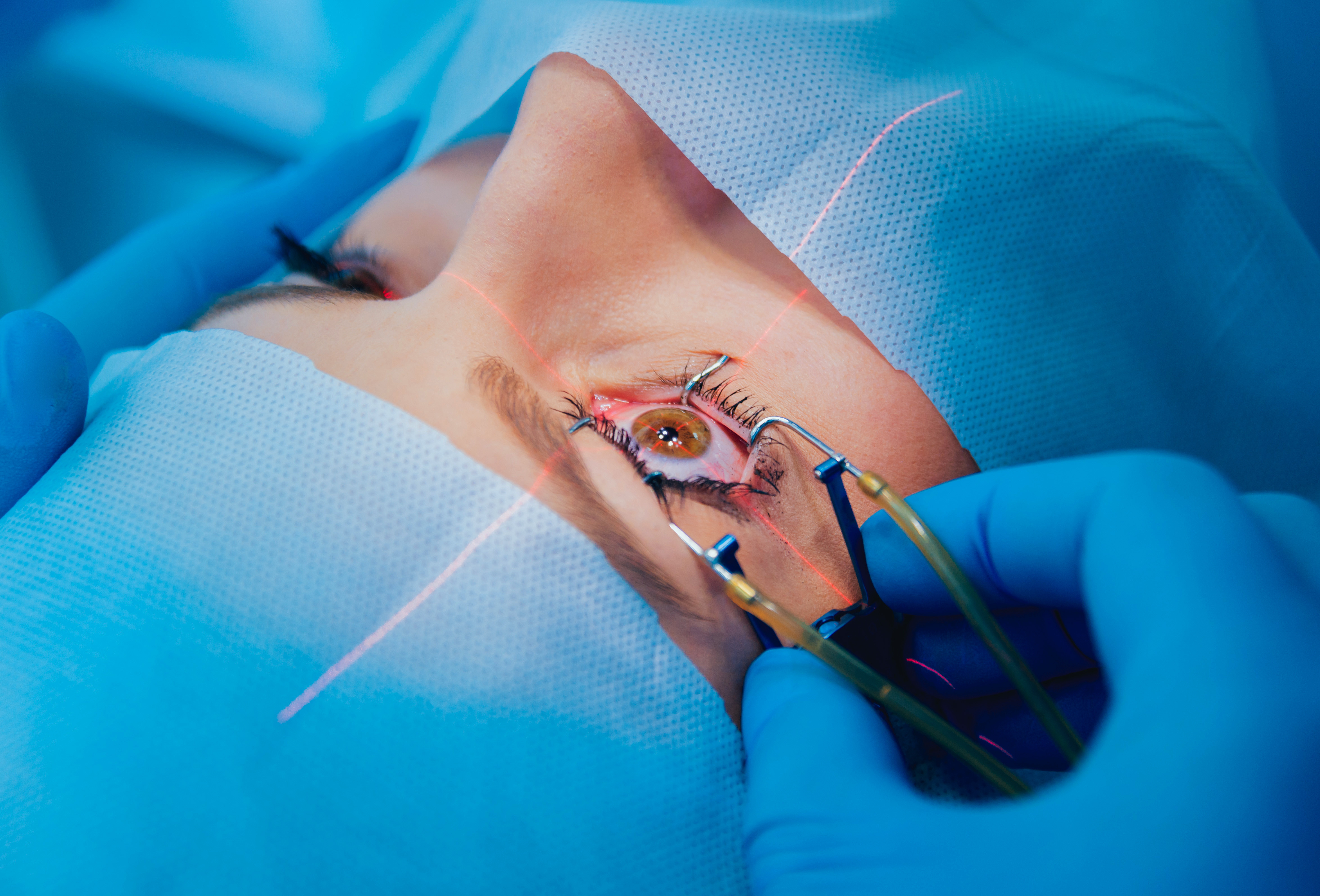Cataract surgery is the most commonly performed operation in the UK, with over 400,000 procedures carried out each year by the NHS alone. While most patients experience improved vision and a smooth recovery, some are left with serious complications due to errors or poor medical care.
This guide explains what cataract surgery involves, what can go wrong, and how to know if you may be eligible to bring a medical negligence claim.
What Is Cataract Surgery?
A cataract is a clouding of the lens in your eye, which causes blurred vision and, if untreated, can lead to blindness. Cataract surgery involves removing the cloudy lens and replacing it with a clear, artificial lens (known as an intraocular lens or IOL).
The procedure is usually quick (about 30 minutes) and is performed under local anaesthetic. It is considered low risk, but like all surgical procedures, it requires skill and care.
What Is Medical Negligence in Cataract Surgery?
Medical negligence occurs when a healthcare provider fails to deliver care that meets reasonable professional standards, resulting in injury or worsening of a patient’s condition. In cataract surgery, negligence may occur at any point from diagnosis to aftercare.
Examples ofCataract Surgery Negligence:
Inadequate Pre-Surgery Assessment
- Failing to conduct a proper eye examination
- Choosing the wrong type or strength of lens
- Failing to identify risk factors such as previous eye conditions
Surgical Errors
- Incorrect positioning of the artificial lens
- Damage to the cornea, retina, or optic nerve
- Operating on the wrong eye
- Leaving lens fragments inside the eye
These errors can result in permanent vision loss or the need for additional corrective surgery.
Post-Operative Failures
- Infections such as endophthalmitis, which can lead to blindness if untreated
- Failing to detect and treat raised intraocular pressure
- Lack of follow-up appointments or proper recovery advice
Consequences of Cataract Surgery Negligence.
When cataract surgery is mishandled, the consequences can be devastating both physically and emotionally. Potential outcomes include:
- Loss of vision (partial or complete)
- Chronic eye pain or inflammation
- Double vision or distorted sight
- Retinal detachment
- Psychological distress, anxiety, or depression
- Loss of independence and ability to work or drive
For many people, vision loss can impact every aspect of daily life, including mobility, employment, and mental health.
How to Spot Medical Negligence After Cataract Surgery?
Some complications are known risks of surgery, but not all problems are inevitable. You may have experienced negligent care if:
- You were not properly informed of the risks or given the chance to ask questions before the procedure
- You were operated on too soon, or when it wasn’t yet necessary
- Your vision deteriorated significantly after surgery
- You were not given proper aftercare instructions
- You were not reviewed promptly when symptoms of infection or pain appeared
- You needed further surgery due to errors made in the first procedure
If any of these apply to you, it’s worth discussing your experience with a specialist medical negligence solicitor.

